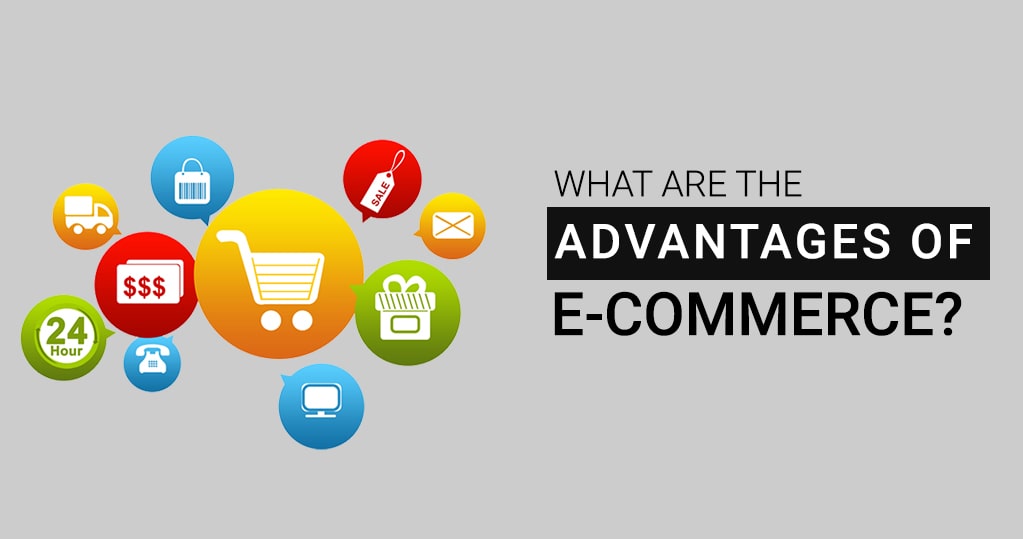Benefits of E-commerce
In today’s digital age, e-commerce has revolutionized the way businesses operate and consumers shop. With the advancement of technology, the benefits of e-commerce are numerous and can greatly impact businesses of all sizes. In this article, we will explore the various advantages of e-commerce and how it can help businesses thrive in the competitive online marketplace.
Increased Reach and Global Presence
One of the key benefits of e-commerce is the ability to reach a global audience. Unlike traditional brick-and-mortar stores, e-commerce allows businesses to break geographical barriers and sell their products or services to customers worldwide. With a well-designed e-commerce website, businesses can expand their customer base and tap into new markets, ultimately increasing their revenue potential.
24/7 Availability and Convenience
E-commerce offers the convenience of round-the-clock availability for both businesses and customers. With an online store, customers can browse and purchase products or services at any time, regardless of their location or time zone. This flexibility allows businesses to generate sales even when their physical stores are closed, maximizing their earning potential. Additionally, customers appreciate the convenience of shopping online, as they can avoid the hassle of commuting, parking, and long queues.
Cost Savings and Efficiency
Compared to traditional retail models, e-commerce offers significant cost savings for businesses. By eliminating the need for a physical storefront, businesses can save on rent, utilities, and other overhead expenses. Additionally, e-commerce allows for streamlined inventory management and automated processes, reducing the need for manual labor. This increased efficiency translates into cost savings and improved profitability for businesses.
Personalization and Targeted Marketing
E-commerce enables businesses to gather valuable customer data and personalize the shopping experience. By analyzing customer behavior and preferences, businesses can offer tailored product recommendations and personalized promotions. This level of personalization not only enhances customer satisfaction but also increases the likelihood of repeat purchases and customer loyalty. Moreover, e-commerce platforms provide powerful marketing tools, such as email marketing and social media integration, allowing businesses to target specific customer segments and drive more conversions.
Wider Product Range and Comparison Shopping
E-commerce provides businesses with the opportunity to offer a wider range of products or services compared to physical stores. Without the limitations of shelf space, businesses can showcase their entire product catalog, providing customers with more options to choose from. Additionally, e-commerce allows customers to easily compare prices, features, and reviews of different products, empowering them to make informed purchasing decisions. This transparency fosters healthy competition among businesses and encourages them to constantly improve their offerings.
Scalability and Growth Potential
For businesses looking to scale and expand, e-commerce offers unlimited growth potential. With the right infrastructure and marketing strategies in place, businesses can quickly adapt to increasing demand and expand their operations without the constraints of physical limitations. E-commerce platforms also provide scalability options, allowing businesses to seamlessly handle high volumes of traffic and transactions during peak periods. This scalability ensures a smooth shopping experience for customers and supports business growth.

E-commerce has undoubtedly transformed the way businesses operate and consumers shop. The benefits of e-commerce, including increased reach, convenience, cost savings, personalization, and scalability, make it an essential tool for businesses aiming to thrive in the digital marketplace. By harnessing the power of e-commerce, businesses can unlock new opportunities, drive growth, and stay ahead of the competition. Embracing e-commerce is no longer a luxury but a necessity for businesses in today’s digital world.
Frequently Asked Questions about the Benefits of E-commerce
1. What is e-commerce?
E-commerce refers to the buying and selling of goods or services over the Internet.
2. What are the main benefits of e-commerce?
E-commerce offers several advantages, including:
Increased reach and global market access
24/7 availability for customers
Reduced operational costs
Improved customer targeting and personalization
Faster and more convenient shopping experience
3. How does e-commerce help businesses expand their reach?
E-commerce allows businesses to reach customers beyond their physical location, enabling them to tap into a global market and potentially increase their customer base.
4. How does e-commerce provide 24/7 availability for customers?
With e-commerce, customers can shop at any time of the day or night, providing them with the convenience of making purchases whenever it suits them.
5. How does e-commerce help reduce operational costs?
E-commerce eliminates the need for physical storefronts and reduces expenses associated with rent, utilities, and staffing. It also streamlines inventory management and order fulfillment processes, leading to cost savings.
6. How does e-commerce improve customer targeting and personalization?
E-commerce platforms collect data on customer preferences and behavior, allowing businesses to tailor their marketing efforts and offer personalized recommendations, resulting in a more targeted and relevant shopping experience for customers.
7. How does e-commerce provide a faster and more convenient shopping experience?
E-commerce enables customers to browse and purchase products or services from the comfort of their own homes, eliminating the need to travel to physical stores. It also offers features like search filters, product comparisons, and one-click purchasing, making the shopping process quicker and more convenient.
8. Can e-commerce benefit small businesses?
Absolutely! E-commerce provides small businesses with the opportunity to compete on a global scale without the need for a physical presence in multiple locations. It allows them to reach a wider audience, reduce costs, and increase sales potential.
9. Does e-commerce have any environmental benefits?
Yes, e-commerce can contribute to environmental sustainability. By reducing the need for physical stores and optimizing supply chains, e-commerce can help minimize carbon emissions associated with traditional retail operations.
10. Are there any security concerns with e-commerce?
While security is an important consideration, e-commerce platforms have implemented various measures to protect customer data and ensure secure transactions. These include encryption, secure payment gateways, and robust authentication protocols.




